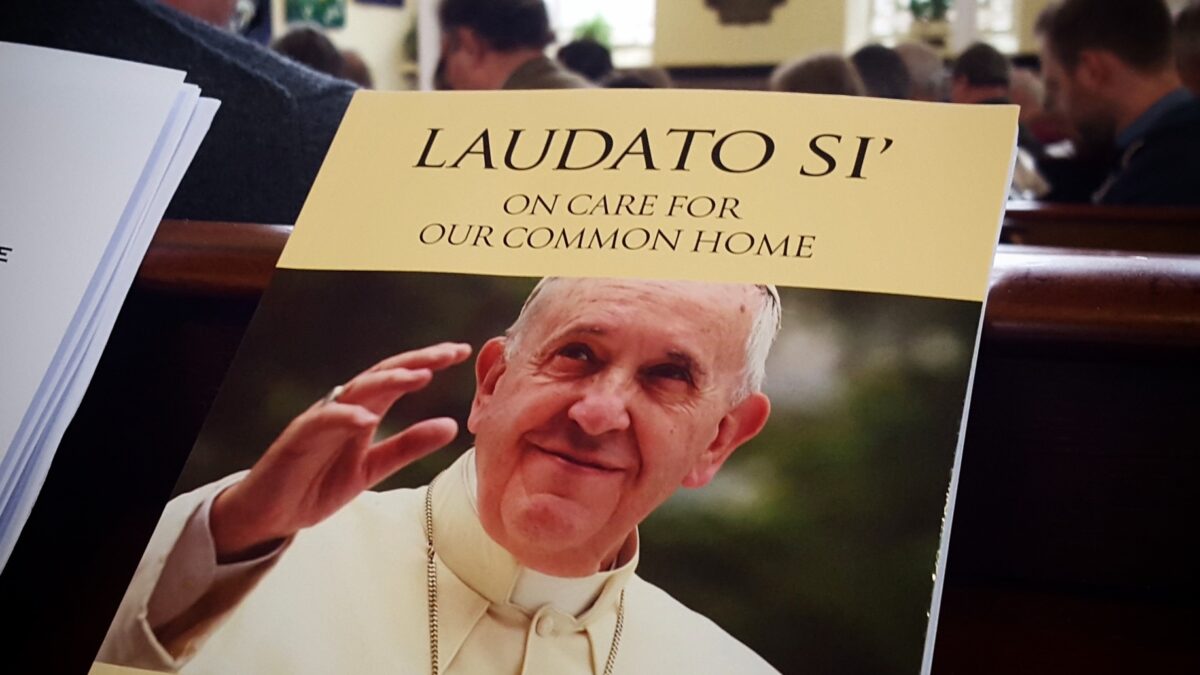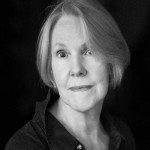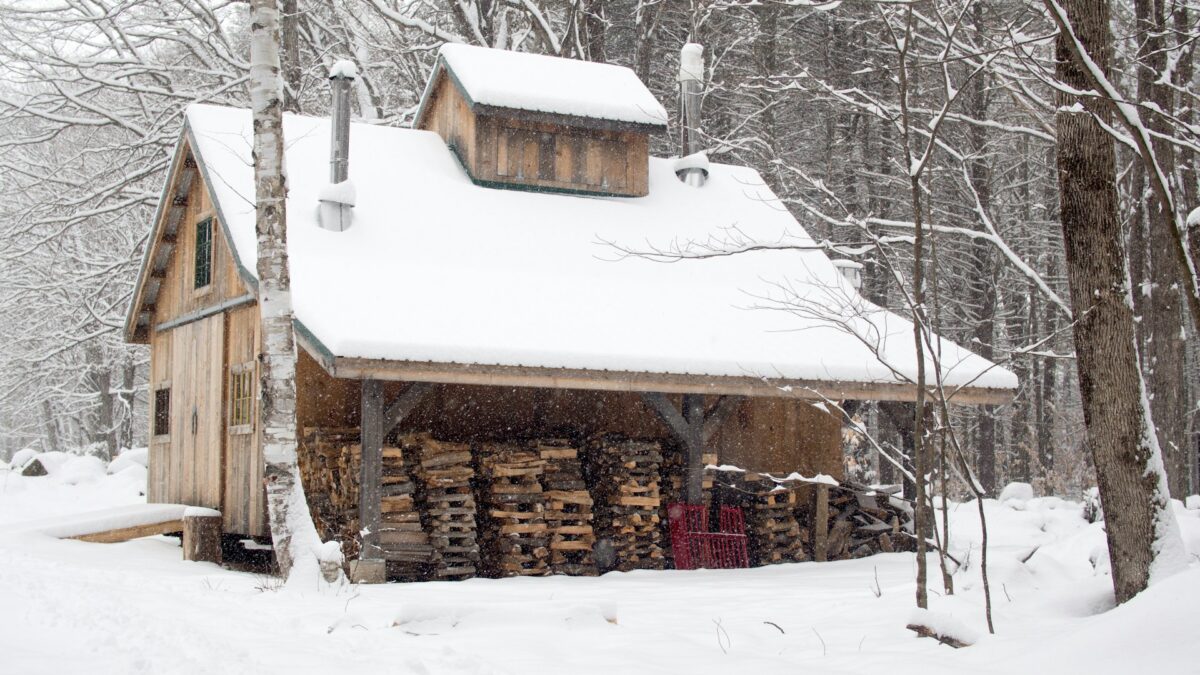Pope Francis’ militant environmentalism comes couched in the devotional language of his 2015 encyclical “Laudato Sí.” What he calls “the Gospel of Creation” is a politicized assault on fossil fuels, industrial development, economic freedom, and private property. It is the Great Reset in cope and chasuble.
A Vatican campaign intent on social, political, and economic transformation arrives this year in two stages. The first appeared in May. The second starts today, Sept. 1, the World Day of Prayer for the Care of Creation, and lasts until Oct. 4, the feast of St. Francis of Assisi.
Because September’s sequel will continue the game plans established in May, attention belongs there.
The Vatican’s fourth annual Laudato Sí Week ran from May 22 to 29. Overlooked by corporate media, it was only nominally a religious event. Assisted by the Laudato Sí Movement (formerly the Global Catholic Climate Movement), plus 800 affiliated Catholic advocacy groups around the world, it confirmed the Vatican’s rapport with the World Economic Forum (WEF).
Moreover, it revealed the strain of soft-core pantheism that Francis shares with liberation theologian Leonardo Boff, his advisor on “Laudato Sí.”
May’s event featured the Laudato Sí Action Platform, a new series of grassroots strategies designed to save our “hotter, dirtier, deader planet” from the people on it. Recommended “sustainability initiatives” paralleled those of the WEF’s Centre for Nature and Climate. These encourage Catholics to lobby for specific U.N. agendas on biodiversity (COP15) and climate change (COP26). This way the faithful can atone for “civilization’s assaults against God’s own handiwork.”
The platform’s statement “acknowledges the planetary limits of all socio-economic systems and the human roots of the ecological crisis.” Accordingly, it seconds Davos’ endorsement of “circular economies,” a veil for economic policy set by global elites and the replacement of shareholders by stakeholders. Stakeholder capitalism is backdoor Marxism, a stalking horse for income redistribution. In brief, Vatican nomenklatura affirms WEF’s ambition to achieve consequential social and political transformation outside of democratic procedures.
Action Platforms aim to “lift up Catholic teaching” on biodiversity and attain carbon neutrality. In a nod to the U.N. Document on the Rights of Indigenous Peoples, activists will launch “ecological restoration activities.” The phrase masks globalist devices for whittling away at national sovereignty by gerrymandering national borders — one way to rehabilitate our “common home.”
The Platform for Ecological Spirituality seeks “creation-based liturgical celebrations” and the development of “ecological catechesis.” The Platform for Ecological Economics marshals Catholics against “any activity harmful to the planet.” Included in the week’s kick-off was a Laudato Sí Mass sponsored by Ugandan Catholics opposed to a pipeline that would carry crude oil extracted in Uganda to Tanzania. Instead, Africans were enjoined to “restore creation by planting trees, and listen to the cry of the Earth.”
Day four showcased a webinar of enthusiasts for climate justice. The panel was chaired by eco-theologian Martin Kopp of Green Faith, an interfaith coalition of degrowth agitators for “climate reparations” and the abolition of fossil fuel. Abortion advocate Jeffrey Sachs participated by urging divestment from fossil fuel as “very important for our souls and our institutions.”
In sum, recommended actions championed every commandment of spiritualized Greenery. These will re-sanctify planet Earth by reviving the — imaginary — eco-innocence of pre-modern lifestyles. The entire project leaned heavily on Leonardo Boff’s 1997 “Cry of the Earth, Cry of the Poor,” a testament to the intuitions of liberation theology.
Two platforms even took their names from the book title. A former priest, Boff argued for “recovery of the aspect of truth in paganism, with its rich pantheon of divinities inhabiting all the spaces in nature.”
Phase two begins Sept. 1, the World Day of Prayer for the Care of Creation. It marks the onset of a quasi-liturgical period dubbed the Season of Creation. Newly invented, it continues until Oct. 4, the feast day of St. Francis of Assisi. To generate momentum for this year’s theme — “Listen to the Voice of Creation” — the pope hurried to release a commemorative message to the world on July 21, a full five weeks ahead of time.
Defined by Francis, creation season is as penitential as Lent: “We must repent and modify our lifestyles and destructive systems.” Only “ecological conversion” will forestall catastrophe and redeem the “ecological debt” incurred by the ravaging West. Our “consumerist excesses” and “predatory economic interests” induce “the collapse of our planet’s ecosystem and the extinction of species.”
Francis rails against the West’s “tyrannical anthropomorphism.” His accusation borrows from Boff’s many restatements of historian Lynn White’s influential charge published in Science in 1967. Lynn attributed “ecologic crisis” to the Christian/biblical tradition. He indicted Christianity as “the most anthropocentric religion the world has seen” because it teaches that only man is made in the image and likeness of God. (Boff scoffed at the teaching as “an androcentric archaism.”)
Francis anticipated this month’s campaign by anthropomorphizing nature. Creation has a “voice.” A suffering earth “cries”; it issues “an anguished plea” that “laments our mistreatment.” The “grandiose cosmic choir” sings reminders that “we are not disconnected from the rest of creatures, but joined in a splendid universal communion.”
Only conscious beings can commune with each other. Promises — such as God’s to Noah and Abraham — can only be made to persons. Francis’ call for “a covenant between human beings and the environment” attributes sentience to the environment. His phrasing goes hand-in-glove with Boff’s belief that:
All the living and nonliving elements are interconnected and make up an organic whole in dynamic equilibrium: the great living being, Earth … as the indigenous peoples and the mystics have always called it, the great and good Mother, Nurse, and Pacha Mama.
The line between the crackpot and the mystic is broad and deep. But the chasm can be obscured with rational-sounding phrases (e.g. “integral human development,” “sustainability”) and magpie assemblages of quasi-scientific references woven together with Christological language. Proclaimed concern for the poor camouflages the flummery. Yet papal hostility to Western means of prosperity is a greater threat to the world’s poor than climate change.









